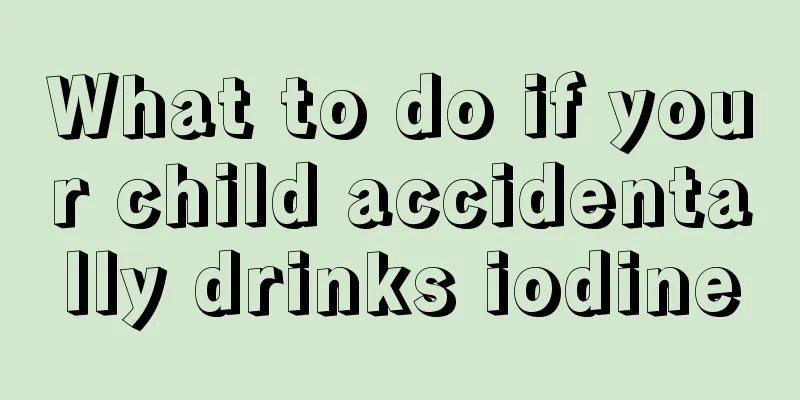What are the causes of rhinitis in babies?

|
Now the air is seriously polluted, and many friends suffer from rhinitis. Especially in winter, we must pay attention to keeping warm, because if rhinitis is caused by typhoid fever, it is very likely to leave a root of the disease. In daily life, we must also pay attention to cleaning the respiratory tract and maintaining the humidity of the indoor air. So what are the causes of rhinitis in babies? 1. Viral infection Viral infection is the primary cause, or bacterial infection is secondary to viral infection. More than 100 viruses are known to cause this disease, the most common of which is rhinovirus, followed by influenza and parainfluenza viruses, adenovirus, coronavirus, coxsackievirus, and myxovirus and paramyxovirus. The virus is mainly transmitted through inhalation through the respiratory tract, and secondly through entering the body through contaminated objects or food. 2. Genetic factors People with a family history of allergies are more likely to develop this disease. Most family members of the patients have a history of asthma, urticaria or drug allergy. In the past, such patients were called atopic individuals, whose ability to produce IgE antibodies was higher than that of normal people. However, in recent years, some people have found that there is no significant difference in the incidence rate between twins and the general population. 3. Susceptibility of nasal mucosa Susceptibility arises from frequent stimulation by antigenic substances, but the degree of susceptibility depends on the number of mast cells and alkaliphils in the nasal mucosal tissue and the ability to release chemical mediators. It has been confirmed that the number of the above-mentioned cells in the nasal mucosa of patients with allergic rhinitis is not only higher than that of normal people, but also has a stronger ability to release chemical mediators. 4. Antigenic substances Antigen substances that stimulate the body to produce IgE antibodies are called allergens. When the allergen enters the nasal mucosa again, it combines with the corresponding IgE and causes an allergic reaction. The allergens that cause this disease are divided into two categories according to the way they enter the human body: inhalation and food. The above is some introduction about the causes of rhinitis in babies. Everyone should pay more attention to helping babies take corresponding protective measures. If it is confirmed that they have rhinitis, they should go to the hospital for treatment in time, because the baby’s resistance is very low. If it is delayed for a long time, it will easily cause other serious diseases. |
<<: How old can babies eat teething sticks?
>>: What are the symptoms of tonsillitis in babies?
Recommend
Eleven-month-old baby has acute gastroenteritis and poor appetite
We all know that when babies are young, because t...
How to deal with baby injuries
The baby's skin is generally very delicate. O...
Is it okay to take a shower after vaccination?
The purpose of vaccination is to prevent children...
Two-year-old baby walks on tiptoe
Two-year-old babies have learned to walk for more...
Three principles of a healthy diet for young children
A reasonable diet for children can not only reple...
What fruits should children eat when they have a cold or cough?
Colds can cause coughs, and prolonged coughing ca...
The difference between exanthema and rubella
Children are more likely to develop roseola or ru...
Baby's developmental indicators at 5 months
We all know that many babies are in unhealthy con...
Nursing methods for children with fever and cold limbs
In life, more and more parents and friends will f...
What kind of rice noodles is good for one-year-old babies?
The rice noodles mentioned here do not refer to t...
What to do if your child has swollen tonsils
Swollen tonsils are a very common disease. Childr...
Why is my baby's stool green?
Many mothers are worried about their baby's g...
What should I do if my child has a fever while teething? Parents should keep in mind
Children do not know how to protect their bodies,...
How to correct overbite in children
In daily life, we often see some children with ir...
Symptoms of intracranial hemorrhage in children
Many newborns will suffer from intracranial hemor...









